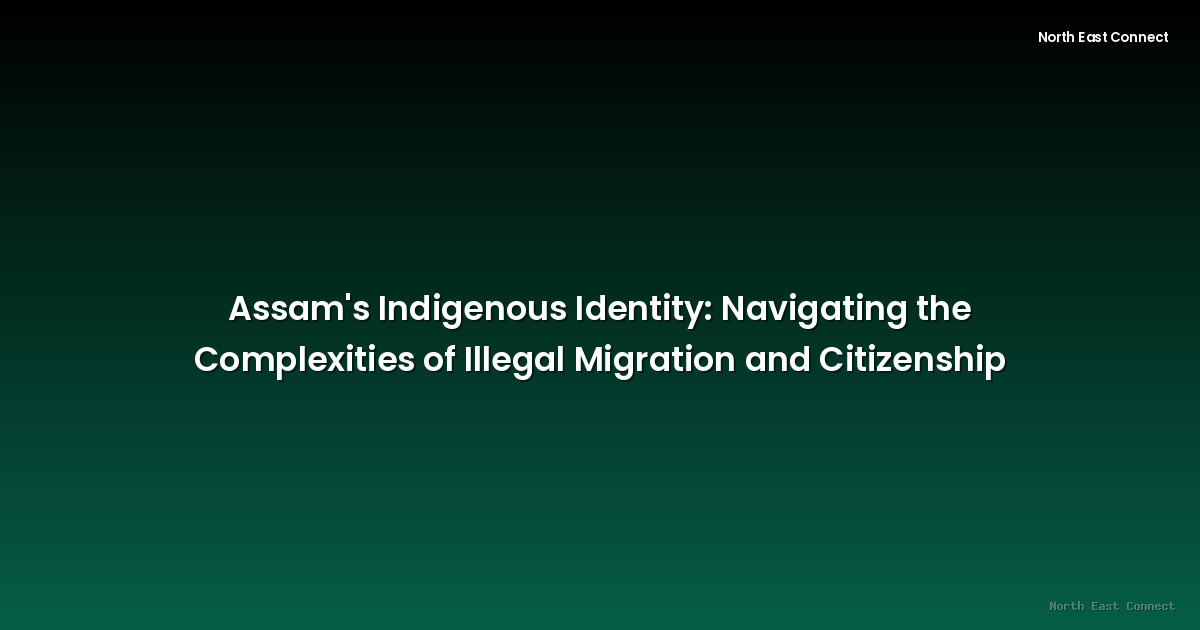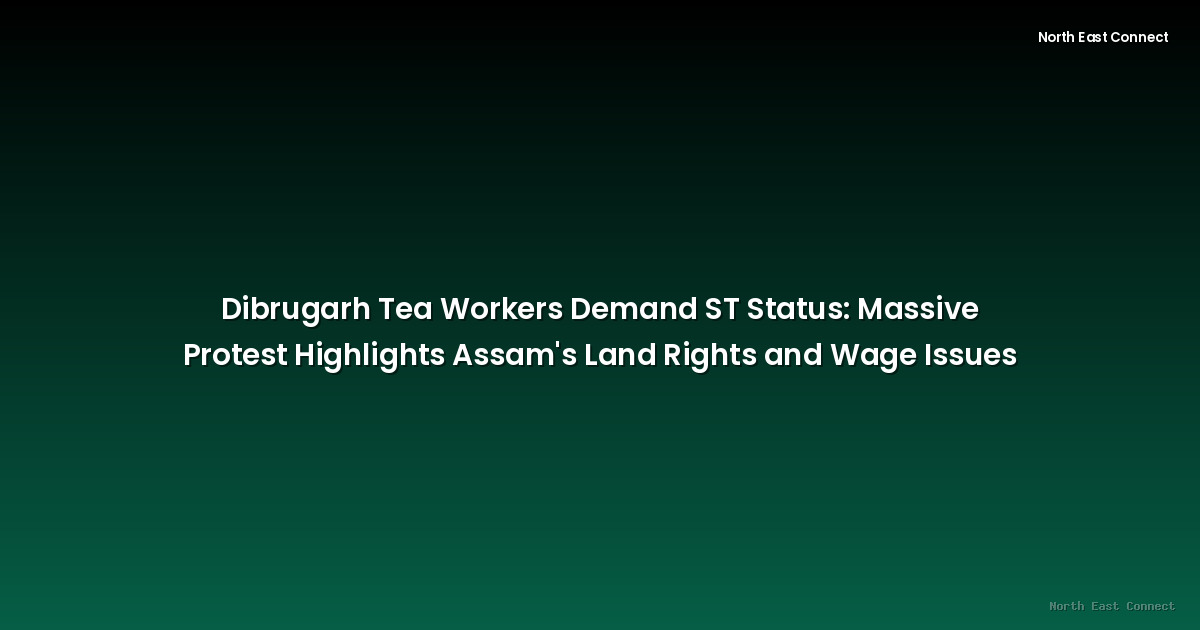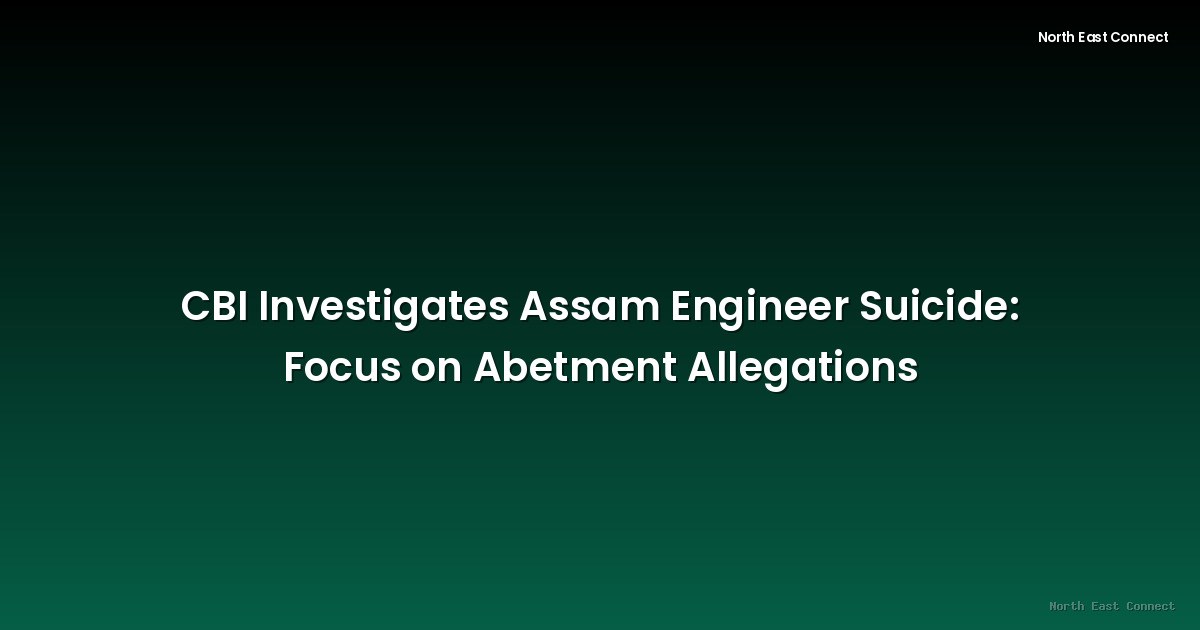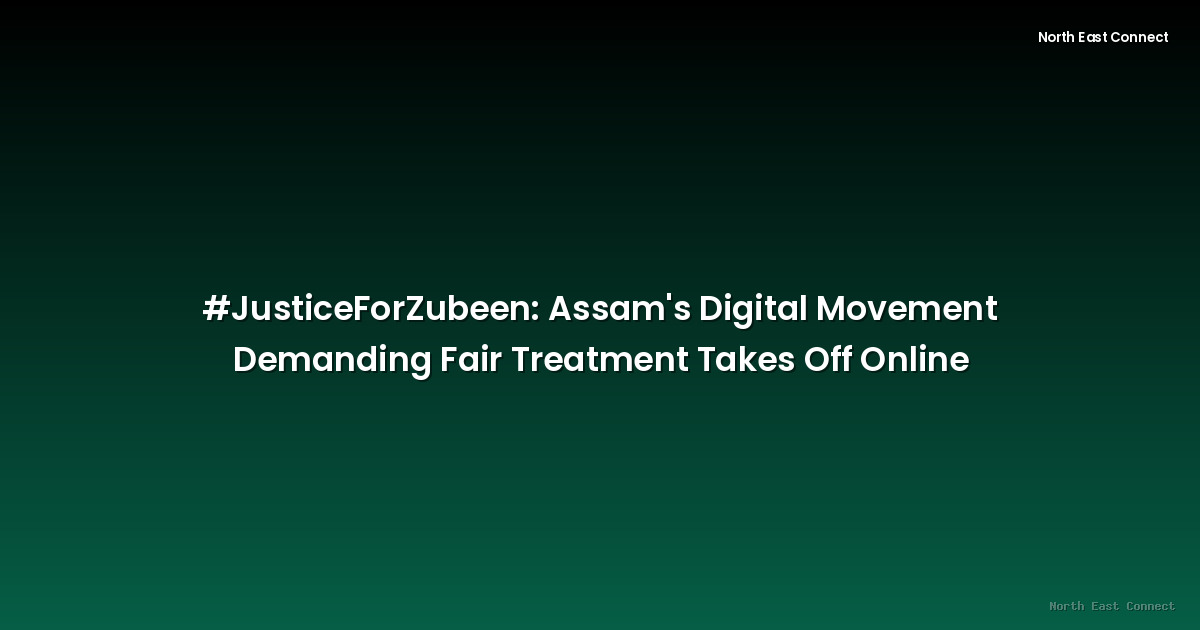2025-09-04 · News
Assam, a northeastern state in India, is grappling with a multifaceted challenge involving the complex interplay of indigenous identity, illegal immigration, and citizenship rights. The historical context significantly shapes the current situation, impacting the lives of both indigenous Assamese and migrant communities. This article examines the core issues and their implications for the region.
The assertion of indigenous Assamese identity is deeply rooted in the state's unique history and cultural heritage. Various ethnic groups, each with distinct languages, traditions, and social structures, have coexisted within Assam for centuries. However, large-scale migration from neighboring countries, particularly Bangladesh, over decades has led to significant demographic shifts. This influx has fueled concerns among many indigenous groups about their cultural preservation, economic opportunities, and political representation.
The legal framework addressing citizenship and illegal migration in Assam is complex and often contentious. The Assam Accord of 1985, designed to resolve the issue of illegal migration from Bangladesh, set a cut-off date for determining citizenship. However, the implementation of the accord, particularly the subsequent National Register of Citizens (NRC) update, has been met with considerable criticism and challenges. The NRC process, intended to identify and deport undocumented individuals, faced logistical hurdles, legal disputes, and allegations of bias and errors, highlighting the immense difficulties in resolving the citizenship question.
The issue extends beyond legal definitions; it has significant socio-political ramifications. The debate over indigenous identity and illegal migration often becomes intertwined with anxieties about land ownership, access to resources, and the potential erosion of cultural dominance. This has led to social tensions and occasionally, instances of violence. Furthermore, the politicization of the issue, with different political parties employing varying strategies to garner support, further complicates efforts to find lasting solutions.
Understanding the historical roots of migration, the legal mechanisms in place, and the resulting socio-political dynamics is critical to analyzing the situation. The debate over indigenous identity and its relationship to illegal migration is far from resolved. Addressing the concerns of both indigenous groups and migrant communities necessitates a multifaceted approach that balances the protection of rights and cultural heritage with fair and just immigration policies. This requires inclusive dialogue, effective governance, and a commitment to creating a more equitable and harmonious society within Assam. The ongoing challenges require careful consideration, policy revisions, and collaborative efforts to ensure lasting stability and justice for all residents.







